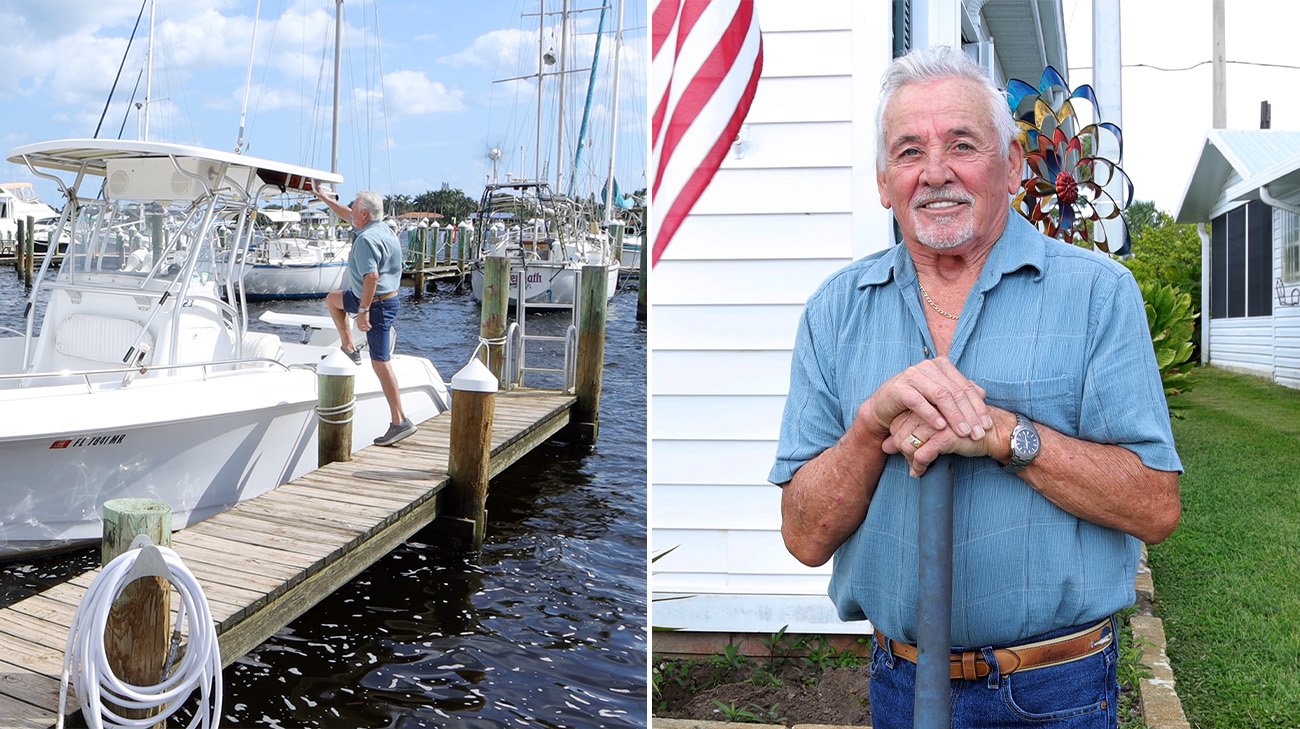Ken Firestone can hardly wait to get back on his boat, head offshore and cast his fishing line in the water. A problem with his shoulder has been getting in the way of the 70-year-old Floridian’s favorite pastime.
“My arm would get fatigued and start hurting,” he says. “I couldn’t lift it up. It would hurt too much. My quality of life was down to about 60 percent. I was really limited in what I could do.”
Ken went to Cleveland Clinic Martin Health to seek help from Orthopaedic Surgeon Peter Evans, MD, PhD, Division Chair for Orthopaedic Surgery, Rehabilitation, and Sports Therapy. Dr. Evans told Ken the reason for his discomfort was an irreparable torn rotator cuff and in addition, moderate arthritis in his right shoulder. Unfortunately, two of the tendons in his shoulder were torn so badly they could not be repaired, so an arthroscopy – a minimally invasive surgery to repair the tendons – would not be successful.
However, there was another option for Ken.
“My quality of life was down to about 60 percent. I was really limited in what I could do.”
“Today we’re lucky that we have a reverse shoulder replacement that can solve both problems—the tendons and the arthritis,” Dr. Evans says.
The key in the reverse shoulder replacement, Dr. Evans says, is that tension in the deltoid is restored so that it can once again become what powers most of the shoulder. A torn rotator cuff causes the deltoid to become loose and floppy.
The procedure also replaces the ball and socket of the shoulder joint, eliminating the pain from arthritis. Reverse shoulder replacement is usually only done on patients later in life, or in patients who have irreparable damage to the rotator cuff.
Most patients also go home the same day of the surgery. A nerve block numbs the shoulder, allowing surgeons to use less anesthesia, feel better faster, and be pain-free for 24 hours.
“Patients don’t feel as badly afterward,” Dr. Evans says, “and they can get back to the comfort of their home before the nerve block wears off.”

Left: Ken Firestone and his boat. Right: Ken after shoulder surgery
Ken underwent a reverse shoulder replacement in July of 2023. He began physical therapy about 10 days later and says his recovery “has been fantastic.”
“I can’t thank Dr. Evans enough,” Ken says. “From day one when I went in everything was fantastic. He was very informative – he walked me through it perfectly and did not rush me.
He gave me all of the information I wanted to know.”
Shoulder replacement surgery has evolved over the last 30 years, and Dr. Evans says he is excited about Cleveland Clinic Florida expanding the same-day discharge program, as well as future surgical innovation.
“Every time we solve a challenge it is joyous to pass that on to our patients,” he says. “Innovation is key. It’s one of the pillars of Cleveland Clinic. Patients are doing better, having less pain and recovering faster.”
Related Institutes: Orthopaedic & Rheumatologic Institute

